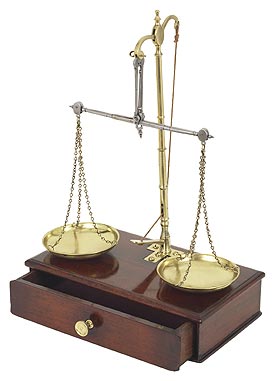
Professional Standards and Conduct
CSUSB is committed to maintaining high standards of performance based upon fair, ethical, and professional business practices. To further this end, the University through the Chief Procurement Officer subscribes to the Principles and Standards of Ethical Supply Management Conduct of the Institute for Supply Management (ISM) and the Code of Ethics of the National Association of Educational Procurement (NAEP).
ISM Principles
- Integrity in Your Decisions and Actions
- Value for Your Employer
- Loyalty to Your Profession
From these principles are derived the ISM standards of supply management conduct:
- Impropriety. Prevent the intent and appearance of unethical or compromising conduct in relationships, actions and communications.
- Conflicts of Interest. Ensure that any personal, business or other activity does not conflict with the lawful interests of your employer.
- Influence. Avoid behaviors or actions that may negatively influence, or appear to influence, supply management decisions.
- Responsibilities to Your Employer. Uphold fiduciary and other responsibilities using reasonable care and granted authority to deliver value to your employer.
- Supplier and Customer Relationships. Promote positive supplier and customer relationships.
- Sustainability and Social Responsibility. Champion social responsibility and sustainability practices in supply management.
- Confidential and Proprietary Information. Protect confidential and proprietary information.
- Reciprocity. Avoid improper reciprocal agreements.
- Applicable Laws, Regulations and Trade Agreements. Know and obey the letter and spirit of laws, regulations and trade agreements applicable to supply management.
- Professional Competence. Develop skills, expand knowledge and conduct business that demonstrates competence and promotes the supply management profession.
Purchasing professionals must have a highly developed sense of professional ethics to protect their own and their institution’s reputation for fair dealing. To strengthen ethical awareness, and to provide guidelines for its Members, NAEP has long promoted a code of ethics.
- Give first consideration to the objectives and policies of my institution.
- Strive to obtain the maximum value for each dollar of expenditure.
- Decline personal gifts or gratuities.
- Grant all competitive suppliers equal consideration insofar as state or federal statute and institutional policy permit.
- Conduct business with potential and current suppliers in an atmosphere of good faith, devoid of intentional misrepresentation.
- Demand honesty in sales representation whether offered through the medium of a verbal or written statement, an advertisement, or a sample of the product.
- Receive consent of originator of proprietary ideas and designs before using them for competitive purchasing purposes.
- Make every reasonable effort to negotiate an equitable and mutually agreeable settlement of any controversy with a supplier; and/or be willing to submit any major controversies to arbitration or other third party review, insofar as the established policies of my institution permit.
- Accord a prompt and courteous reception insofar as conditions permit to all who call on legitimate business missions.
- Cooperate with trade, industrial and professional associations, and with governmental and private agencies for the purposes of promoting and developing sound business methods.
- Foster fair, ethical and legal trade practices.
- Counsel and cooperate with NAEP Members and promote a spirit of unity and a keen interest in professional growth among them.
Members are also encouraged to participate in continuing open discussions of ethical principles with their colleagues and with others.